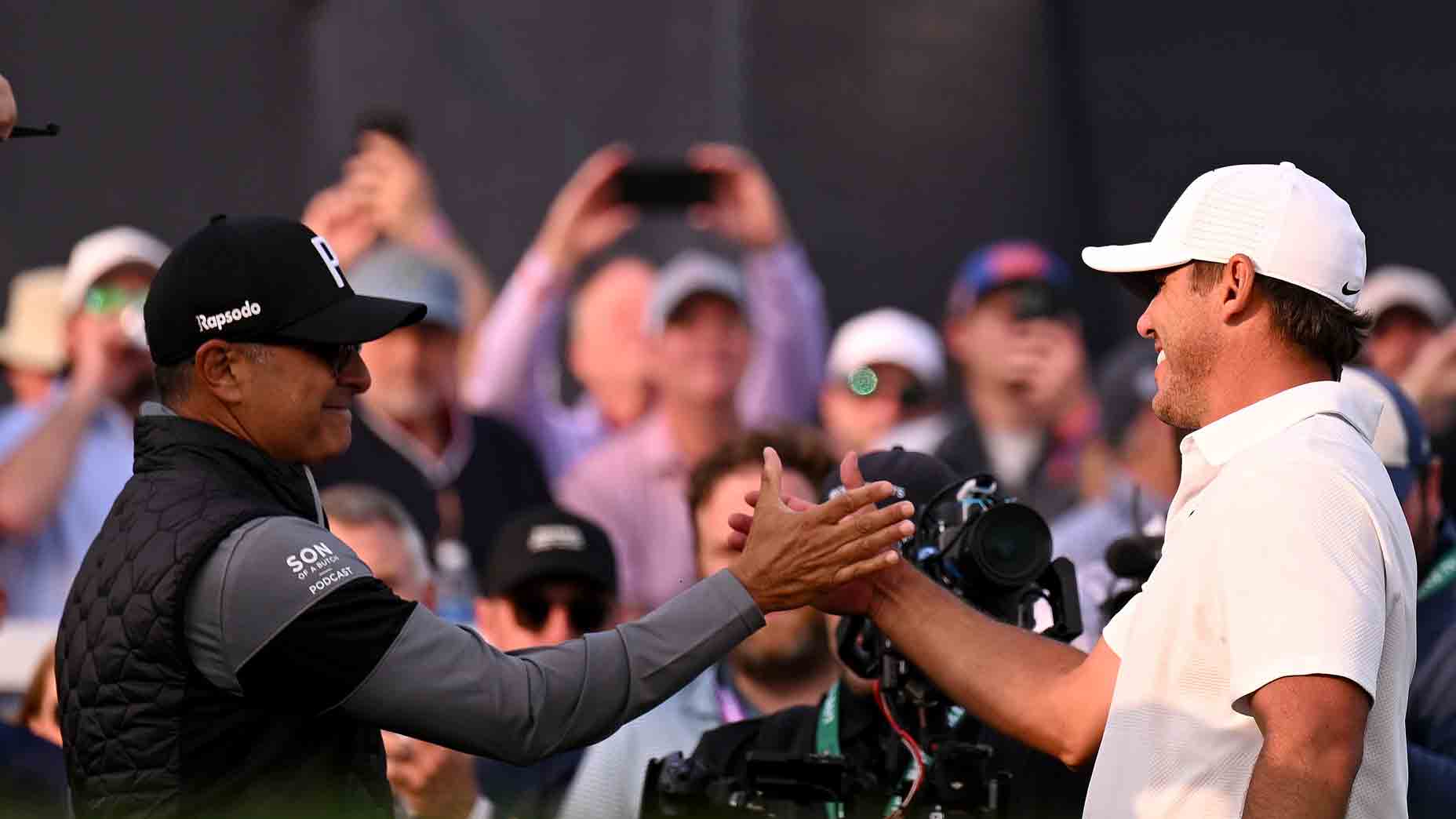Talk to him, Claude Harmon III told his young star a few years back. Don’t be shy.
A round with a current world No. 1 is rare.
The kid didn’t balk. They got to the 3rd hole — and he fired off a question to Brooks Koepka. It’s a good one. Part course management. Part mental game. Koepka would appreciate it.
How many flags do you shoot at?
“And I’ll never forget this because of the look on the kid’s face,” Harmon said. “… Brooks said, ‘Major or non-major?’
“And the kid goes, well, what’s the difference? Well, if it’s a major, I’m not really aiming at any of the flags. We’re trying to aim away from it because it’s so penal if you miss greens. So he said, maybe five, and his caddie, Ricky Elliott, held up three fingers and he goes, maybe three. And that’s if we got a really good number.”
Harmon, a GOLF Top 100 Teacher and son of the legendary Butch Harmon, was talking on a recent episode of the “Your Golf Performance Podcast,” which you can listen to here. His anecdote was meant to illustrate a point.
He believed it’s among the most sure-fire ways to lower a handicap.
It’s just four words long.
“Stop aiming at flags,” he said.
It’s percentage golf. It’s also part of the game’s charm, though some may care for another word. Firing at flags offers reward, though often the odds of being punished go up. You bring more of the hole’s defense into play. But firing at a green’s middle, though less adventurous, stifles trouble. If successful, you’re also still on the green, too, which is always advantageous.
On the podcast, Harmon illustrated the thought further. If you have the means, drop golf balls onto the center of your home course’s greens, he said, then look at where pins could be placed. “They’re not putting pins in places that are unacceptable,” Harmon said. “So put the ball in the middle of every green, and then go, OK, they put the pin front left, I could probably two-putt this. They put the pin front right, I could probably two-putt this.”
Then there are par-3s.
Middle of the green. Unquestionably.
Harmon had two stories. The first featured another junior player, longtime pro Jim Herman and more counsel. The kid was off to play college golf soon. What could Herman tell him? Simple.
Play the par-3s in one-over for a tournament week.
“He said every time I do that, I’m on the leaderboard on Sunday and I have a chance to win,” Harmon said on the podcast. “And the kid’s mind is just blown. And the kid’s like, what do you mean?
“He’s like, well, par-3s are where they’re going to tuck the pins the most, the par-3s are where, if you miss a green, you’re either going to short-side yourself, hit it in the water, so just dump it in the middle of every single green. And if you can play the par-3s in one-over — he said if you play the par-3s for the week — three rounds, two rounds, four rounds — you play them in under par or one-under, you’re probably going to have a chance to win the golf tournament.”
The second story? It also included Koepka. He arranged for Elliott, his caddie, to loop for his brother, Chase. Elliott, Harmon said on the podcast, called it eye-opening. They’d come to a 240-yard par-3. There was some wind. Water down the left side. Bunkers right. Pin back.
Harmon said Chase told Elliott that he wanted to hit a cut 3- or 4-iron. He said he needed to hit a good shot.
Elliott told him to hit 5-iron.
“Dump it in the middle of the green, and let’s get out of here,” Harmon said on the podcast. “And he said Chase went, yeah, but I need to hit a good shot. Ricky’s like, we’re 240 to the flag, there’s water left, there’s a bunch of bunkers right, middle of the green here is a good shot.
“And he’s like, your brother when he was No. 1 in the world wouldn’t be going for this flag.”
Editor’s note: To listen to the entire podcast with Harmon, please click here.
